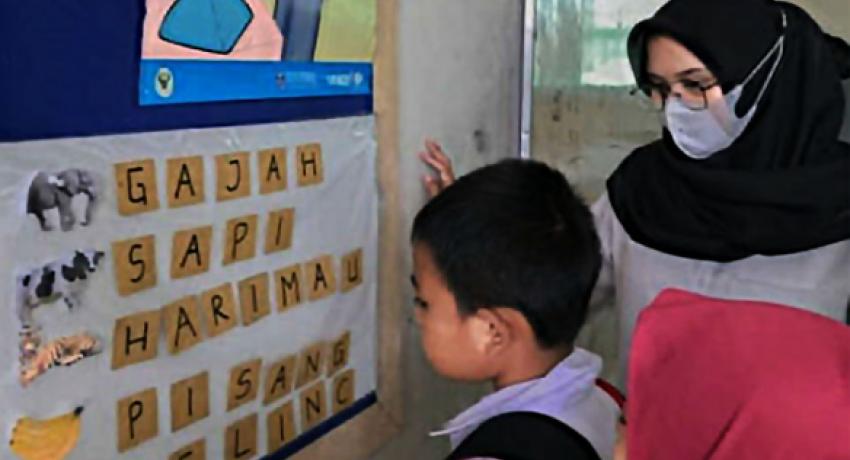Teaching Campus is one of the programs of the Emancipation Learning program. Through this program, selected Universitas Negeri Yogyakarta (UNY) students have the opportunity to develop creativity and learning innovation in elementary and junior high schools affected by the pandemic. In addition, students can be directly involved in the implementation of literacy, numeracy, and technology adaptation at the elementary and junior high school levels. "I tried to take the opportunity to participate in the teaching campus program. After going through a series of selection processes, I was finally selected and got an assignment at SD Negeri 1 Tlogowatu, Klaten Regency," said Hafzah Irlin Zuchria, a student of Sociology Education at UNY.
Hafzah is one of the UNY students who participated in the Teaching Campus Batch 3 Program. Before fully working at the school, she had to take part in debriefing, deployment, observation, and program planning. At the debriefing stage, students gain knowledge for teaching assistance in elementary schools. At the deployment stage, there is coordination between the Klaten District Education Office and SD Negeri 1 Tlogowatu. Finally, to provide an overview of the school, the participants carried out observations and interviews with one of the teachers.
"After making observations, we prepared programs/activity plans. As a result, several programs/activities have been carried out for approximately four months serving at SD Negeri 1 Tlogowatu, including the following: helping teachers teach in class, tutoring calistung (reading writing and arithmetic), making learning media, assisting the teacher and school administration, helping library administration, assisting technology adaptation, introducing sex education, and holding class meetings (contests)," she said.
"It is a valuable experience for me to be able to teach students directly and apply the knowledge that I have gained during lectures, especially related to microteaching. During the learning process in class, some students are still not fluent in reading, writing, and arithmetic. This condition encouraged us from the campus teaching team to hold a calistung guidance program. Calistung guidance is held twice a week, on Mondays and Tuesdays, and is attended by students from grades 1-4 who are not yet fluent in calistung. To support the calistung guidance program, my friends and I made eco media-based learning media in the form of a counting board and a spelling board. The counting board is a learning media that is made to help students learn to count for more fun," she said.





